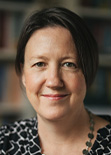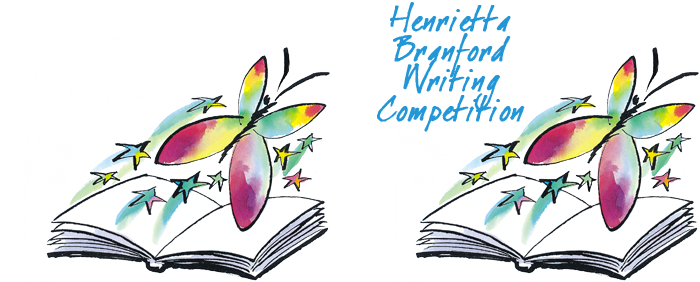Author: Nadia Mikail

The Branford Boase Award judges praise The Cats We Meet Along the Way as ‘fresh, uncontrived, skilfully mixing hope and dread’. Where did the idea for the book come from and what was your starting point?
The judges are incredibly kind. The idea for the book came from a place of pure homesickness – I was away at university and I missed my sister, I missed my parents, I missed being home, even though it’s never the same when you go back home after university, is it? It’s not truly home any more. I started exploring that idea in a story and then the pandemic hit, and the story reshaped itself into something larger and stranger, as stories often do. I went back to it and added an apocalyptic event that was very obviously inspired by the paranoia and fear pulsing through the world at the time – people didn’t know what the world would look like, when it was so clear to them before. And the rest of the story flowed from there.
What did you enjoy most working with Bella on the book?
Every chance I get I gush about working with Bella, so thank you for giving me another chance to do so! She’s a dream editor. I enjoyed working with her on a technical level, as she made the editing process completely collaborative – her suggestions were not only her ideas for what could be improved, but questions that made me think about how differently scenes could play out to make room for more cathartic moments later.
Another thing I appreciated about working with her is that the book is extremely Malaysian, and she understood that perfectly. There are phrases that can’t be translated into English, and others that I didn’t want to be translated. Some things are universal, cross-cultural, like when a mother calls a child her love, and what she means by that, how much care and devotion is poured into it. I trusted that readers could see and understand in the context of the scene what this Malay phrase meant, and how beautiful and universal of a thing it is. Bella completely understood all of this and was very supportive about it.
More generally, I enjoyed working with Bella because she made me feel very comfortable as a debut writer. She was very kind to someone who didn’t know anything about publishing. She explained the process step by step, patiently answered any query I had, and held my hand throughout the whole thing. It’s so important to find an editor who makes you feel as comfortable as Bella does.
What is the thing you are most proud of about your book and why?
I think it’s two things. The first is that I am proud of finishing something this long – the novel isn’t a very long one, but I’d only ever written short stories before and this was big for me. It took a lot more discipline than I thought.
And I am also proud of the story I told. A lot of it was very personal, a lot of my own memories and experiences and emotion went into it, and at times it was an endless struggle to get each word out. Like my main character, Aisha, I had things I didn’t want to think about for a long time, and I was writing quite explicitly about them. But like Aisha I didn’t give up! We both pushed through and eventually we got some catharsis – her through talking to her family, me through writing the book, and I’m very proud of us.
Do you have a favourite scene in the book? Can you describe it for us?
My favourite scene in the book is one towards the very end. In my view Aisha’s been sort of wading in shock and repression for most of the book, not only since the apocalypse was announced, but for much of her life after losing her father. So towards the end of the book she is finally coming to terms with these different sorts of grief and loss in her past and future, and there’s a chapter where she dreams of a life she might have had. That’s my favourite chapter, because she imagines lots of things about it: going to university, making new friends, a better relationship with the people she loves. A good life. And as she can finally mourn her past and this potential version of a future, she starts to realise how very important it is to fight for any sort of future, not only for herself but her loved ones as well.
What advice would you give to debut writers?
I think it’s important to love something about your work. You can hate each word after rereading it for the eighteenth time. God knows I have. You don’t have to be completely proud of it when it’s submitted – there’s always going to be things I wish I could change about my stories. But if you love something about your work – the way you write dialogue, how you’ve set up a character’s arc beautifully, the belief that you’re telling an important story – everything you’ve worked towards will be worth it. It means that even when you’re experiencing imposter syndrome or you accidentally see something say something dismissive about your book or you’re just feeling very uncertain about what you’re doing writing at all, you’ll have something that you can hold onto. And that means you’re going to want to write again! And I think that’s the most important thing.
Editor: Bella Pearson

What was it about Nadia’s writing that most excited you about her book?
Nadia submitted the first 2000 words of The Cats We Meet Along the Way for the Guppy Open Submission Competition in 2020 – the very first competition we ran. I looked at every single entry (nearly 400 in total!) and whittled them first down to about 30 on the longlist and then 11 on the shortlist. And I vividly remember when I first read Nadia’s submission amidst all the others, having a strong suspicion that this was an established writer entering the competition under a pseudonym – the writing was so assured, so spare yet revealing, so beautifully crafted that I almost couldn’t believe it was from an unpublished writer. The way Nadia evoked a scene/characters with so few words, the originality of the beginning and the very concept, the compulsion I had to read on and find out what happened next – all these things sprang off the page from the very beginning. And the book as a whole was an extraordinary blend of emotional inner life and page-turning what-happens-next. So skilful and wise, thoughtful and kind – a book I knew would be taken to people’s hearts as it was to mine.
What were the main things you worked on with her as editor?
Nadia writes with such subtlety and nuance which is one of the reasons I love the book so much. But occasionally her writing remained a little too elusive during the more powerful moments; I remember that the main work we did was to make sure the emotional beats of the novel were as strong for the reader as possible – at times emotion wasn’t quite coming out strongly enough and therefore impact was lost. We talked a lot about Aisha, making sure that her emotional inner life was as transparent as possible especially towards the end – the sort of letting-go and coming to terms with things was brought out more strongly. And we worked together on the structure – it’s a complicated one but needed to be as clearly told as possible so there were no barriers for the reader in terms of understanding, and Nadia achieved that so very beautifully. With such small but impactful shifts, she created an emotional masterpiece; it was a complete pleasure to work on with her.
You won the Branford Boase Award with Jenny Downham in 2008 and have been shortlisted multiple times. Have you noticed changes in writing or publishing for young people since your first win?
I think writers and editors/publishers are much more aware of the need for more inclusive and diverse fiction though there is still a long way to go; there are definitely changes to what would be published these days in terms of experience and cultural appropriation too. Storytelling is a reflective craft and we’re starting to see a shift in perspective as to the purpose and ideology of the storyteller themselves. I would struggle to suggest shifts in terms of genre – we’ve just come out of a strong middle-grade fantasy moment (or perhaps we’re still in it?) but I tend to take no notice of what’s hot at the moment, and just take on what I think is the very best.
What do you find most satisfying about being an editor?
Working with lovely and talented writers and making sure their vision for their book is there on the page – it can be hard when you’re in the book itself as its creator, and the editor’s role is simply to be the one on the outside, with an understanding of what the author wants the book to be, and nudging towards it. I love reading so much – and my sieve-like brain enables me to forget what I’ve read quite quickly so multiple reads are not a problem for me (up to a point!). I also love the fact that every writer is different – it’s important to get to know the person and work out how they like to work, rather than a one-size-fits-all approach. Every job is different and it never gets boring.
What advice would you give anyone wanting to write for young people?
Read! Read anything/everything you can. Trust your own voice. Don’t worry about other storytellers and the way they do it. Have confidence – there’s a real skill to sounding confident on the page. Don’t worry about breaking the rules, as long as you know what rules you’re breaking (which is intuitive as well as learned). And love what you do – it’s a tough journey so you do need to enjoy writing.
The Cats We Meet Along the Way is published by Guppy Books, 978-1913101596, £7.99 pbk.
Thank you to Nadia Mikail and to Bella Pearson for answering our questions.



